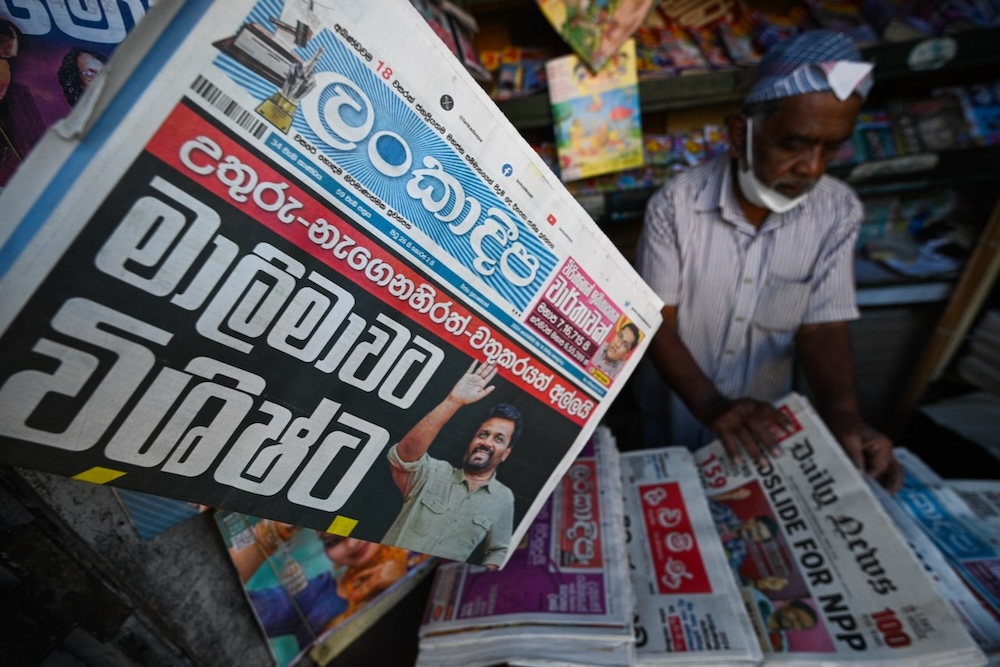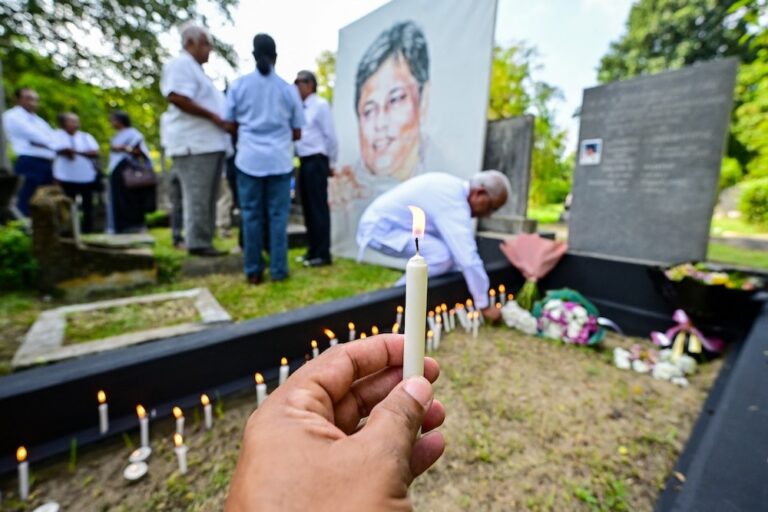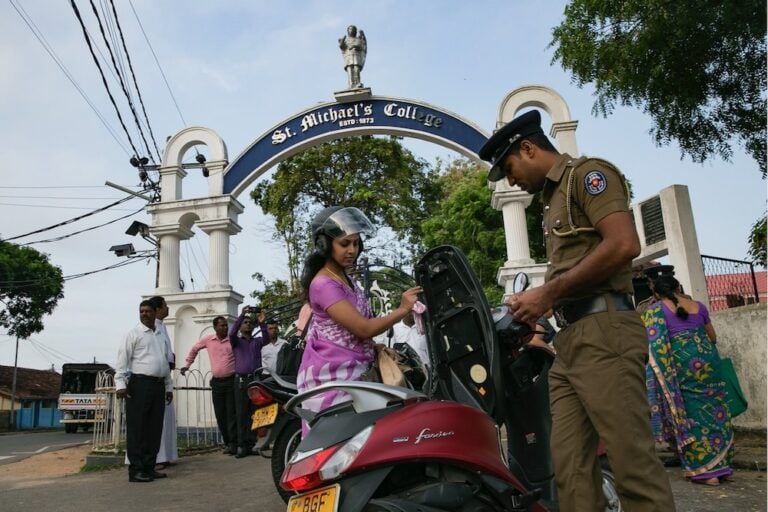25 civil society groups, including IFEX, wrote a letter urging the recently elected Sri Lankan president to uphold and protect press freedom.
This statement was originally published on ipi.media on 13 January 2025.
The International Press Institute today joined 24 civil society organizations in urging recently elected Sri Lankan President Anura Kumara Dissanayake to respect freedom of the press and to take concrete steps to end impunity for crimes against journalists.
Together with our partners, we urge President Dissanayake to seize this opportunity to make critical legal reforms, including repealing the Online Safety Act and the Prevention of Terrorism Act that have been abused to muzzle and punish the press. We also urge his administration to reopen or initiate prompt, impartial, and transparent investigations to ensure accountability in cases of violence against the press and other violations of human rights and freedom of expression.
Read the full letter below:
–
January 13, 2025
President Anura Kumara Dissanayake
Democratic Socialist Republic of Sri Lanka
Re: Press Freedom Protections in Sri Lanka
Dear President Dissanayake,
Congratulations on your recent election as president of Sri Lanka. We, the undersigned 25 civil society organizations, are writing to respectfully urge your leadership to ensure that Sri Lanka upholds press freedom and the right to freedom of expression, which are protected by the country’s constitution and the International Covenant on Civil and Political Rights, to which Sri Lanka is a state party.
We welcome the expressed commitment of the National People’s Power to uphold media freedom and pursue accountability for past crimes against journalists, as outlined in the coalition’s election manifesto. To that end, we call upon the newly elected government to:
- Reopen or initiate prompt, impartial, and transparent investigations to ensure accountability in cases of violence against the press and other violations of human rights and freedom of expression, including, but not limited, to dozens of murders, abductions, and physical attacks on journalists and media offices during and in the aftermath of the country’s 26-year civil war that ended in 2009. The investigations should meet international standards, including those outlined under the United Nations’ Minnesota Protocol on the Investigation of Potentially Unlawful Death.
We stress that effective investigations require robust protection mechanisms for witnesses and investigators — an issue thoroughly described in the 2022 case hearing on slain journalist Lasantha Wickrematunge for The People’s Tribunal on the Murder of Journalists, a joint initiative of the Committee to Protect Journalists, Free Press Unlimited, and Reporters Without Borders.
We welcome the recent order of a reinvestigation into the 2005 murder of journalist Dharmeratnam Sivaram. We further urge authorities to bring the prolonged prosecution for the 2010 enforced disappearance and suspected murder of journalist and cartoonist Prageeth Ekneligoda to a timely and effective end while ensuring accountability for all perpetrators and providing access to justice and effective remedies for Ekneligoda’s family.
2. Ensure that law enforcement agencies end the harassment and intimidation of journalists, especially ethnic Tamils, who have long faced intensive surveillance and other undue restrictions on their reporting. Law enforcement agencies should facilitate the withdrawal of criminal cases brought against journalists in retaliation for their work. Further, authorities should not take legal action against journalists for “intimidating public servants.”
3. Repeal the Online Safety Act, which grants sweeping powers to a commission appointed by the president to censor online content, thereby creating a chilling effect on human rights, including the right to freedom of expression. The law should be replaced with new cybersecurity legislation aimed at addressing genuine online harms, such as harassment and fraud, rather than enabling disproportionate and unjustified restrictions on peaceful online speech and jeopardizing the right to privacy.
4. Repeal the Prevention of Terrorism Act, which has long been used to harass and imprison journalists for their work. The relevant offenses should instead be addressed within the framework of the country’s existing criminal laws.
5. Amend the Parliamentary (Powers and Privileges) Act, which curtails reporting on parliamentary affairs that are crucial matters of public interest, and introduce proactive measures to ensure greater media access to parliamentary committees.
6. Amend the Personal Data Protection Act to remove provisions allowing the law to override the Right to Information Act, which is essential for investigative journalism. Neither law should override the other in their respective implementation processes.
7. Establish an independent, self-regulatory media commission that will uphold press freedom and adjudicate matters of journalistic ethics without criminalizing reporters or placing undue restrictions on their work. The commission should ensure fair and adequate representation of the media sector within its membership and guarantee the right to appeal against its decisions, including in a court of law.
Your election as president of Sri Lanka, a country haunted by impunity for brutal attacks on the media, offers a historic opportunity to demonstrate a genuine commitment to human rights and the rule of law. We urge you to seize this critical moment and stand ready to support your efforts to protect media freedom, as well as the rights to freedom of expression and access to information. The Sri Lankan people deserve no less.
CC: Mr. Harshana Nanayakkara
Minister of Justice
Democratic Socialist Republic of Sri Lanka
CC: Mr. Nalinda Jayatissa
Minister of Mass Media
Democratic Socialist Republic of Sri Lanka



